Interview: PETER ADARKWAH // BBE
Interview by Daniel Muldoon t: @selfishD
Peter Adarkwah is a DJ and the founder of the legendary BBE records. Barely Breaking Even kicked off in 1996 and celebrates its 15th anniversary this year. Daniel Muldoon chats to Peter about classic releases and future plans.
Look out for an interview with Chris Read next week, after his date in Sheffield at Thirsty Ear on Saturday.
You are living in Germany aren’t you?
I am, but I am on the move now, I kind of feel that my time has run its course in Germany.
Really?
Well, I mean a combination of that plus new interests so I’m going to be in Ghana more than I will be in Europe I think.
I recently saw that you have set up BBE Africa. What are you thinking of doing?
Well, that’s just something by the wayside as it were, but something that I will look in to. I’m basically going to start farming in Ghana. As a sideline, I’m going to keep music, art and culture as a hobby rather than the main focus of my existence as it has been so, but I am sure that things that music and stuff will follow me, at least I have the outlet there to release it as and when I come across things that I am interested in.
So your family are from Ghana?
Yes.
So you are going back to your roots?
Yeah. I have lived there for a little bit as I was growing up, I have been interested in food a lot more as time’s gone by and the idea of doing a farm is really appealing.
So music is a very small part of it?
For Africa? Music is at the bottom of the food chain in this sort of instance. We’ll see how it goes.
You are releasing BBE’s 15th Anniversary compilation, why did you choose DJ Chris Read to mix the compilation?
Well, he just recently won an online mix competition hosted by Mixcloud then he did a mix for us on the tenth anniversary of the BBE Beat Generation series and I think he did a really good job, it wasn’t always a case of like the big name necessarily doing the mix but someone who could do something very creative and he did, and he puts alot of time into his mixes and stuff which I thought would seem like an obvious choice to help get that done.
You have released some amazing music throughout the 15 years, were there some songs you insisted had to be on the comp?
No, I left that up to Chris! The only thing is that: “Look there’s 15 years of BBE and there’s X amount of artist albums that came out, you just have to represent everyone as fairly and equally as you can”, and the end product might have been a little bit top heavy on a couple of acts but that wasn’t something that I went back and asked him to fix, it was just his decision. I’m not the one doing the mix, the reality of DJ’ing is that you cant always make songs fit. So I can’t give you a playlist and say “mix this and mix this”… oh, you can sometimes but not when there’s also a very diverse range of things.
So it was quite naturally compiled and mixed.
Yeah, and I think that’s generally for the best part, that’s always the way that it’s always been. For The Beat Generation, someone’s doing an album, I might give them a background of what the series is about but I’m not going to tell you to record this song with so-and-so and do it this way. You do it as best as you can and we’ll meet artistically, you know there might be a few gentle suggestions but nothing like pushing you into doing something that you may not be able to do or can’t do.
You have had some big releases this year like David Rodigan’s Dubwise Showers, it has quite a contemporary feel, because of it’s links to the dubstep scene.
That was precisely why we did it because David was DJ’ing more and more at the dubstep parties, we did two reggae compilations and I felt it was worth doing something else with him just because he is a very dynamic person. He is one of the best DJ’s in the world regardless of genre because you go and you get full entertainment educational experience while he DJ’s and has name checks on intro’s of records from all the artists who were anybody in reggae. Someone like him being more of an educational DJ which was so interesting about some of the DJ’s that I have approached in terms of getting them to do compilations, some of them have a technical quality and for others it is their knowledge of music. If you put all the elements together the fact that he’s been DJ’ing for over 30 years, a very entertaining DJ and has such an intense depth of knowledge about DJ’ing that it has to done, so that was the reason for doing that. So, happy with the artwork, happy with the content and happy with the end result.
Another big release was the Tenth Anniversary of The Beat Generation series, especially with Mr Thing, Chris Read and DJ Spinna doing the mixes. Could you tell us how the concept of the Beat Generation started?
It all went back to about 1998. I think Kenny Dope from Masters of Work said to me “Look, I’m coming over to London to hang out” so he came and stayed at my house, went record shopping, went up to Manchester, went up to Crazy Beat in Essex, went in and around Soho, just hanging out and we were driving back from somewhere in South London, I’m not quite sure where we went or what we were doing that day and he said he would do an album for me, and I was like “You mean like a comp or something?” and he was like “No, an artist album”. Now at that point I had only being doing compilations because it was an easier thing to do, suddenly we were talking about money and it seemed in reality it was not far away from the cost of doing some of the much more expensive compilations that it would be a good idea. If we’re talking that kind of budget from someone like him then maybe if I can approach other producers and get some albums out of them, affordable hopefully then it would be nice venture into artist albums and that would also be something that would entice other producers to come forward and seek each other out. That album unfortunately never happened but he introduced me to Dilla and Jazzy Jeff…
Those two I want to talk about…
He put me in touch with those two, I had said what would be really cool would be doing like an album, a collective of producers and then thought about the whole Beat Generation of the poets, who were sort of free-thinking, sort of jazz loving, radicals doing something different and alternative to what was going on in the art scene in San Francisco, so I borrowed the name from their movement The Beat Generation and ran with the series. I think also at that time I had become acutely aware that if you didn’t brand something it just became harder to sell something. I called it up, spoke to the designer at the time Tom McCallion, got him to do a logo, to package the whole thing up and figured out how we do the whole thing with merchandise, t shirts and slipmats and the concept.
After visiting artist’s homes or going record shopping with them, I realised that they weren’t just into hip hop, obviously you know because you’re listening to it, especially at that time, hip hop was very sample heavy, so it was a case of whether you just went digging for riffs, or whether you actually loved stuff from the 70’s, 60’s or whatever. As it turns out, they all were into it, they all grew up on that stuff, into different music. Invariably if you had a conversation with them about music you never talked about hip hop, you talked about Stan Getz, or you talked about Art Blakey, you talked about Fela or you talked about whatever else, but hip hop was very rarely mentioned. It was about getting this record and finding it on the 12 inch and this that and the other, and this drum break and somewhere and all this kind of stuff. Then it was kind of like the purpose of it was to create something more music than what they were known for. So that’s the general sales pitch for The Beat Generation that was given to people.
What’s the story behind you meeting J Dilla?
Kenny Dope told me to call him up, I called him up, we met in West London when Slum Village were doing a performance, I gave him some records and I think maybe three months later ‘Welcome 2 Detroit’ was ready.
To try and promote Jazzy Jeff and J Dilla you prepared mixtapes of their work with other artists?
Yeah I think it was important to inform people because I don’t think everyone knew, also regardless of that, you cant assume everyone knows. So you’ve got to do some sort of awareness and it was just an easy tool to get out there that would, for those who didn’t know or just knew some of it, hear something about these people because we are talking about people who are behind the music so if you said to someone “Oh you know, Quincy Jones produced Michael Jackson’s Thriller” most people wont know what that involves. So it’s not only do they not know the person, but they don’t actually know what a producer does. You sometimes have to feed people information rather than wait for them to seek it out for themselves, not as extreme as Britain’s Got Talent or X Factor but it is essential the same process. If you want to sell something to people you have to give them the tools for them to make up their minds. Do their thinking for them. So it’s a simple marketing process.
How did you meet Jazzy Jeff?
Again Kenny Dope introduced me to him.
So Kenny Dope has been a key person in this?
Yeah a very fundamental person, he introduced me to Jeff, and then he called me up one morning and he said “ Oh Jeff’s in town with Will Smith, they’re promoting I think it might have been ‘Independence Day’ or ‘Men In Black’ one of those two, and they’re staying at The Dorchester in London, so go and see him. Will’s off doing TV commitments in the morning so go take him record shopping!” So I rocked up there in a battered old car and we went record shopping! We talked about music, there was some synergy and that was it! We talked about the record, we talked about the series, luckily by that time I think ‘Welcome 2 Detroit’ was done so that was a good benchmark for everyone as well, a definite ice breaker or sort of like a bone to the dog, sort of like ‘I’d like to be a part of this, I’d want to do that’. Luckily because he delivered a good record, to a degree intimidated some people but also to a degree made it easier to approach people and to sell the idea onto other people who may be vaguely interested.
What is BBE’s relevance as a label in 2011 and how does that differ to it’s relevance 15 years ago?
I don’t know if it is any more or any less relevant now, there’s a bit of goodwill because it’s been around a while and that’s possibly of some advantage to someone who has ever released a record before. Not big enough to be like what be the next model which is kind of like an all-round sort of thing where you do the booking, you do the publishing, you do the music, you do everything for the artist and take a share of all streams of their revenue as well but you do all the work in the background. So you become more of a management company rather than a label and I think that’s more the relevant direction to go in the future and from now going in to the future. The least control you have, the least influence you are going to have on an artist and what happens to the records. In a way I would say probably less relevant than it was, I would definitely say less relevant than it was because everyone can release a record and setup an account and sell stuff directly from their website and all the rest of the stuff and that’s true of most labels. It’s the format change which has necessitated the structure of a label needs to change to adopt to the needs of a modern or an artist of today.
You say you are moving to Africa, where do you see yourself in 15 years time and where do you see BBE in 15 years time?
I see myself traveling across Africa, in the food business and doing various food orientated things and some projects around the arts. But mainly as a community based, conscious issues and helping educate people about simple illnesses that they can cure and music just being a hobby which is what it was when I was growing up and I would like to keep it as a hobby and not be the main focus of my life because what you put into your body is way more important than the hobbies and the rest of the stuff and if people can get away from understand the pride of owning something in their community, looking after themselves, being able to feed their children, being able to eat healthy and balanced meals, it’s way more significant to me than you going to a bar or club and listening to some records and in your spare time you can play in a band and record music and stuff but it;s not something that, I’m not that submerged into music that I need to just follow that blindly for the next 15 years and it;s not kind of like, it;s a life changing situation, I became diabetic five years ago so it changed completely how I have to eat and how I have to look after myself so it’s just made way more conscious about eating and allergies and things that are good for your body than anything else and if you don’t have you health then you cant do all the other things that you need to do so that’s the priority.
Could you give me two label changing moments you’ve had during the 15 years?
I think two label changing moments I think is Kenny Dope’s introduction and one sort of plus side and one sort of downside would be our first distributor going bankrupt. It’s changes your perspective on life and what’s important and what’s not plus it just reminds you that cant always have what you want out of life, it’s not necessarily good to feel vulnerable, you don’t want to feel like you are on edge all the time and that kind of stuff but t can help you sort of figure out your priorities in life in someways but it was also a very difficult and challenging time when you find yourself in a situation where you’ve lost 100, 000 pounds and beyond forever and there’s nothing you can do to get it back. It think those two moments are like the things that will stick in the mind for a long time!

Could you define the ethos of the label in under 50 words?
Well the short answer to that would be “Real music for real people!” (laughs) I think if you are into different things or you into different aspects of music, we tried to give people a range of stuff that was relevant to people who were in the scene and not just kind of like at a grass roots level and not just after it becomes sort of diluted and that sort of stuff. Often, if you were at a certain age and you went to different certain clubs, the way the music felt to you then on the dance floor in the basement of what then became the Bluenote or was the bass clef at the time when Norman Jay was doing his nights there for example, is a different feeling from going to a party now because you basically had people who went there to dance. There was nothing fancy, there was no sort of smoke and mirrors about it, then you heard really good music that came out or was being made at that time and it wasn’t about some cool video that was made to sell the song or whatever, it was about liking music, meeting like minded people that liked the same music and going and having a dance with them. That’s really what the label tried to represent, that kind of feeling, so if you were there at the time at the birth of something or at the creative peak of something that’s what it tried to represent and not the kind of bit where it had become like you’re some German producer somewhere and hear some disco records and think “I know, I’ll create some music to conquer the disco world” or some cheesy whatever blah blah blah but the bit before it got to that stage, before people decided to turn it into something else and that’s what I mean about it being real.
If you could release an album with an artist or a band from any era, dead or alive, who would it be?
To do an album with… at their peak, probably Parliament or Earth, Wind and Fire. There’s a few, there’s a few. Parliament, Earth, Wind and fire like in the 70’s to 75 period. Roy Ayers, Herbie Hancock, The Doors, Cream, Cann, yeah, there’s a few, those are the very obvious ones, like there’s a few more, if I could cheat, I could look at my iTunes library quickly, one second!
We have lift off! Airto Moreira, a percussion player, he made some brilliant albums in the 70’s, Banda Black Rio, a good band from South America, Bill Withers, definitely a great lyricist, a great songwriter, The Blackbyrds, Quincey Jones, there’s lots of people who did records that are definitely who I would’ve liked to have done stuff originally on BBE. Bootsy Collins, you know part of that Parliament collection, Cameo did some great records in the 70’s. I’m missing a couple of Jazz people, Shaka Kahn, she made incredibly records in the 70’s, one of my favourite female vocalists, Cutris Mayfield, there’s iconic people of course.
Do have any record labels you like old and new?
Stax, Philly International, and then new, the selected ones, I like some of the stuff that Stones Throw do, there’s a few, but it’s normally about the artist rather than the label, it’s not kind of like looking at the label and wanting to buy everything on the label, occasionally you have that feeling of checking them out of how prolific they were. The labels can act as good taste makers to a degree.
Let’s talk about the musical talent you’ve witnessed.
The thing that Dilla said to me is that a big thrill for him was sometimes finding a sample, sometimes people sample a beat so many times and the challenge for him was to do something different with the same sample that had been used to death, and that was something that was very interesting to him. Some people are like “If someone has sampled it, I don’t want to sample it as well”, but he was one of the few, or the only one I remember that actually had at thrill out of doing that, some people feel like if someone has done a beat, that’s it, if someone’s done it, leave it to them, I will see if I can do something really fresh out of something that’s been done to death.
All I can say is thank you for all the great music that you have put out.
Thank you, thank you.
BBE 15 – 15 years of Real Music for Real People – compiled and mixed by Chris Read is out now!

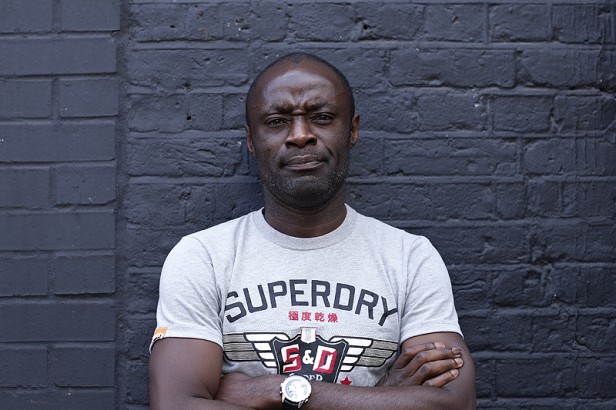
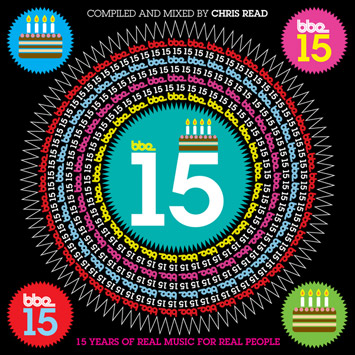

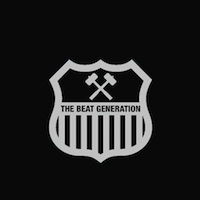
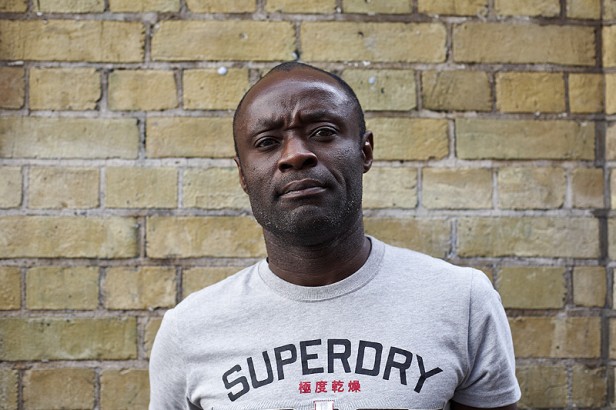
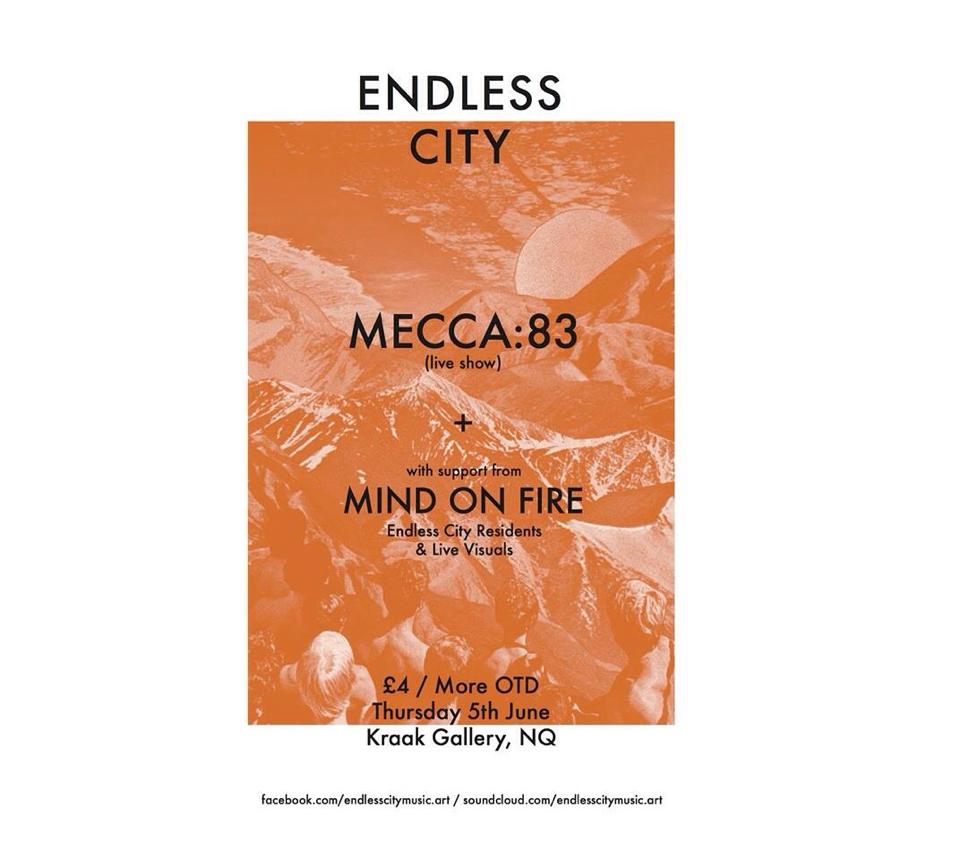
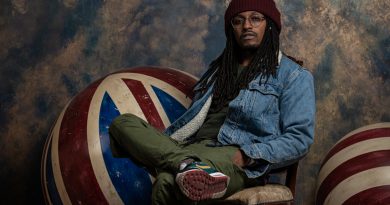
Pingback: INTERVIEW: Peter Adarkwar « Indulging in music
Pingback: INTERVIEW: Chris Read « Indulging in music
Pingback: Meet Me at The Republic | ACCRA [dot] ALT Radio